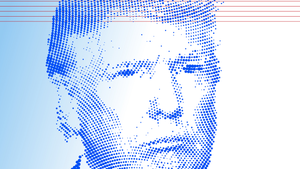Donald Trump’s ‘AI Action Plan’ doesn’t talk about copyright, but during an on-stage ramble when launching the plan yesterday the President made it clear he’s very much bought the tech sector’s official line on copyright and AI.
Expecting American AI companies to seek permission before making use of any copyright protected works when training their models is “not doable”, according to Trump, and will give China a competitive advantage.
“You can’t be expected to have a successful AI programme when every single article, book or anything else that you’ve read or studied, you’re supposed to pay for”, the President said. “You just can’t do it”, he added, “because it’s not doable”, and, crucially, “China’s not doing it”.
The copyright industries - including the music industry - are adamant that AI companies must get permission from copyright owners before using their content to train AI. But many in the AI sector argue that AI training constitutes ‘fair use’ under American copyright law, meaning they don’t need to get permission - and recent legal developments have appeared, in some cases, to support that argument.
Many big copyright owners, including the major record labels and music publishers, have taken legal action against AI companies in a bid to demonstrate that AI training is not fair use, filing a plethora of lawsuits.
However, rights owners would prefer for governments and legislatures to just clearly state that AI companies always need to get licences. And in the US, that means the executive and legislative branches of the federal government, or Trump and Congress.
Trump’s ‘AI Action Plan’ provides no guidance one way or the other, but his on-stage remarks very much favour AI companies. “When you have something, and when you read something, and when it goes into this vast intelligence machine”, he rattled on, “you cannot expect to every time, every single time, say, ‘Let’s pay this one that much’. It just doesn’t work that way”.
Alluding to the argument that AI training is no different than humans reading books or listening to music and then using that to inspire their own creative output, the President added, “Of course, you can’t copy or plagiarise an article, but if you read an article and learn from it, we have to allow AI to use that pool of knowledge without going through the complexity of contract negotiations”.
According to Politico, Trump officials have said that the copyright obligations of AI companies should be decided by the US courts, which is why there isn’t a copyright section in the ‘AI Plan’. Given Trump’s comments, that might suggest his team expect the courts to ultimately reach conclusions that favour the AI sector - which, so far, seems to be the case.
The first two rulings in copyright cases involving generative AI models - in which Anthropic and Meta were the defendants - did conclude that AI training was fair use.
Though, despite those two rulings that appear to favour the AI companies, there’s still plenty of ambiguity that could favour rights owners.
In the Anthropic case the judge said the fair use defence would probably fail if the AI company used pirated content in its training data, which Anthropic did. And in the Meta case the judge provided some advice on how a copyright owner might defeat an AI company’s fair use arguments.
And, from a legal standpoint, the matter is far from settled - all of these rulings will almost certainly be appealed, a process that will take years as big test cases work their way to the US Supreme Court.
The US Copyright Office did provide some additional guidance earlier this year, though that too was slightly ambiguous, in that it concluded that AI training might be fair use in some circumstances, but almost certainly isn’t in others. Plus its report on AI and fair use was published the very week that Trump sacked Copyright Office boss Shira Perlmutter.
In ongoing legal proceedings around her sacking, Perlmutter’s lawyers this week claimed that her dismissal was partly motivated by Trump not wanting her to advise Congress on AI matters, presumably because he expected her to take a position that favoured copyright owners over AI companies.
In Congress itself, proposals were introduced earlier this week that very much favour copyright owners, proposing a new law that would put in place a clear obligation for AI companies to get permission before using any copyright protected works.
That currently has cross-party support, though - given Trump’s comments yesterday - it seems likely that it will struggle to secure enough support on the Republican side to actually get passed.
Because Trump will almost certainly tell them that the proposed new copyright rules will hinder the core objective of his big AI plan, which is “winning the AI race” and defeating the main current rival, copyright ignoring China.

